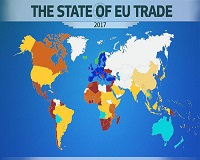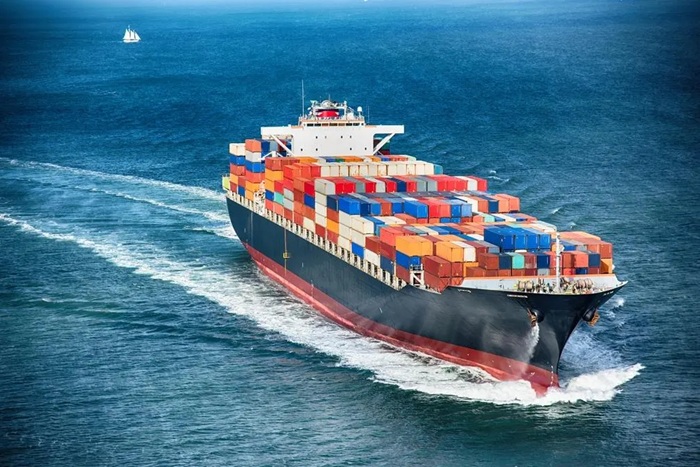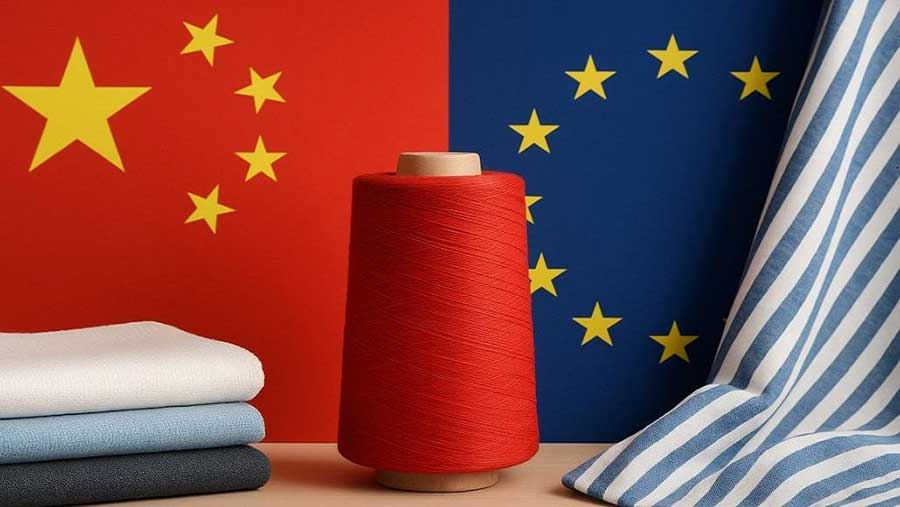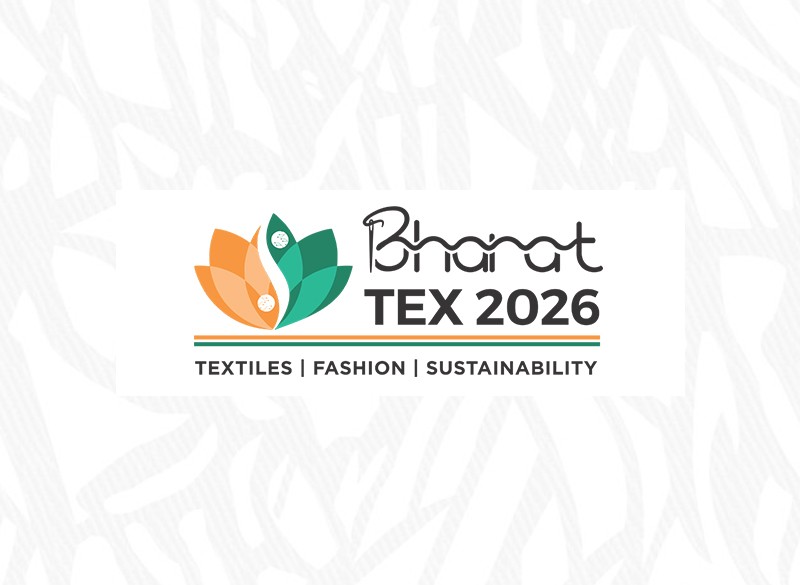FW
Women in Vietnam make up 80 per cent of the workforce in the garment sector. Better Work has been operating in Vietnam since 2009. This is a joint program of the ILO and International Finance Corporation and is active in eight countries, reaching more than two million workers.
Over 500 garment factories, with a workforce of 7,00,000, participate in the program in the country. The program has shown garment factories that provide decent, good quality jobs and treat workers fairly can be a powerful driver of women’s empowerment and help bring lasting benefits to them, their families, and their communities.
As a result of their participation in the Better Work program, factories have steadily improved compliance with ILO core labor standards and national legislation covering compensation, contracts, occupational safety and health and working time. This has significantly improved working conditions and at the same time enhanced factories’ productivity and profitability. Better Work, launched in 2014, is a joint initiative between International Labor Organization and International Finance Corporation. It helps ensure compliance issues like welfare funds, vacation and maternity leave in factories. It has introduced a new concept of supporting readymade garment factories to boost their compliance while enhancing productivity.
As per the BGMEA (Bangladesh Garment Manufacturers and Exporters Association), the country’s RMG exports to the European Union surged 10.95 per cent from July to December (FY ’17-18). The EU is the largest garment export market for Bangladesh followed by the US. Bangladesh exported apparels worth $9.577 billion to the EU in the first six months of its fiscal 2017-18 as against $8.633 billion in the corresponding period of FY 2016-17.
The top five exporting destinations were: Germany, UK, Spain, France and Italy during the review period. Bangladesh shipped apparels to Germany valued at $2.665 billion as compared to $2.632 billion in the same period of FY 2016-17. The second spot in the tally was grabbed by the UK which imported RMG worth $1.85 billion from Bangladesh. The value posted a staggering surge of 20.70 per cent on the year-on-year basis.
Spain ranked third with $1.133 billion RMG import from Bangladesh. Last year, in the same period, Bangladesh shipped apparels worth $900 million to Spain, thereby, in the current fiscal it marked a solid boost of 25.87 per cent in the exports value. France and Italy remained at 4th and 5th spot with apparel import from Bangladesh worth $ 878.35 million and $ 743.88 million, respectively. Exports to France went up 1.09 per cent an impressive 16.18 per cent jump was witnessed in RMG exports to Italy.
Bangladesh is the third largest exporter of textile and apparel products globally. Its textile and apparel exports grew at a CAGR of nine per cent over the last five years while imports increased at a CAGR of seven per cent. Cotton textiles is the largest imported category by Bangladesh, representing 55 per cent of total textile and apparel imports. This is followed by manmade textiles, others and apparel with a share of 35 per cent, 6.8 per cent and 3.2 per cent respectively.
China is the largest supplier accounting for a 58 per cent share. India is the second largest supplier of textile and apparel products to Bangladesh. Cotton textile is the largest category with a share of 77 per cent in India’s textile and apparel exports to Bangladesh. This is followed by manmade textiles and apparel having a share of 17 per cent and four per cent respectively.
Currently Bangladesh imports yarn and fabric from China, India and other nations to fill the demand-supply gap. However, many new investments are planned in the spinning and weaving sectors of Bangladesh in the coming years. Thus Bangladesh is expected to emerge as a self-sufficient textile and apparel hub by focusing more on backward integration within the next 10 years. This is expected to lower export opportunities for China and India.
Hence, while Bangladesh is a key export market for Indian textiles, it will be important for Indian firms whose major export market is Bangladesh to look for newer markets for their exports in the coming years.
On an average it takes about 70 liters of water to make a pair of jeans. Now, Arvind aims to make a pair with just a glass of water. Arvind is one of India’s largest denim producers. The company produces over 100 million meters of fabrics and six million pairs of jeans.
A year ago, Arvind moved to zero discharge of hazardous chemicals from its units. For reducing its water footprint, the company has worked with technology providers in the US and imported machines from Europe that now allow it to replace the water used in washing of denim to manufacturing instead with machines to give the same washed look.
Chemical waste from the manufacturing of indigo blue jeans has turned rivers to an unnatural shade of blue in countries like China and India. Denim constitutes approximately 30 per cent of Arvind’s fabric and garment business. Arvind is a supplier to brands like Tommy Hilfiger, Calvin Klien, Gap, Levi’s, Lee, Wrangler, H&M and Hugo Boss. It also has its own in-house brands like Flying Machine.
Close to 650 to 700 million pairs of jeans are sold annually in India. The global jeans market is expected to grow by 4.2 per cent for men and 3.7 per cent for women.
“It’s the first time in history that key players from the industry have joined forces to discuss and agree on what to prioritise to improve the industry’s environmental and social footprint. It takes a coordinated effort to move the needle on sustainability, which is why this agenda for a common industry focus holds the potential to be a major breakthrough - Eva Kruse, CEO, Global Fashion Agenda”

The Global Fashion Agenda has released its first-ever CEO Agenda for the fashion industry. It spells out seven most crucial sustainability priorities for fashion CEOs in 2018. Developed in collaboration with leading fashion players including Kering, H&M, Target, Bestseller, Li & Fung and Sustainable Apparel Coalition, and building on the Pulse of the Fashion Industry 2017 report co-authored by Global Fashion Agenda and The Boston Consulting Group, the historic first edition offers clear guidance for company executives on where to focus their sustainability efforts. Eva Kruse, CEO, Global Fashion Agenda, said, “It’s the first time in history that key players from the industry have joined forces to discuss and agree on what to prioritise to improve the industry’s environmental and social footprint. It takes a coordinated effort to move the needle on sustainability, which is why this agenda for a common industry focus holds the potential to be a major breakthrough.”
The change agent

Employing 60 million people worldwide, the fashion industry generates €1.5 trillion in global revenue (apparel action is and footwear) but that value is at risk if no taken. In fact, projections from the Pulse of the Fashion Industry 2017 report show that fashion brands will see a decline in EBIT margins of more than three percentage points if they continue business as usual. Kruse commented, “Fashion is one of the largest industries in the world, but also one of the most resource and labour intensive. The environmental, social and ethical challenges the industry faces today are not only a threat to the planet, but also a threat to the industry itself. That's why there's no alternative but for sustainability to become an integral part of any company's business strategy.”
The CEO Agenda 2018 spells out seven priorities that should be top of mind for any CEO in fashion right now. Three priorities for immediate implementation include supply chain traceability; efficient use of water, energy and chemicals; respectful and secure work environments, etc. Apart from this, there are four transformational priorities for fundamental change in the long run. These include sustainable material mix; closed-loop fashion system; promotion of better wage systems; and fourth industrial revolution.
Industry voice
On the back of Agenda launch, Karl-Johan Persson, CEO, H&M, elaborated, “The big challenges facing the world can only be tackled by working together. This is a prerequisite for making the fashion industry part of the solution rather than part of the problem. Our collaborative mindset has, for example, helped us when setting the ambitious goal to become climate positive by 2040. This means we will go beyond minimising the negative consequences of our business to create a positive impact on the planet. But no matter if the challenges are about recycling innovation, new sustainable materials or working conditions for the people making our clothes, our collaboration with others is key to make lasting change.”
Amanda Nusz, VP & general merchandise manager, Target, added, “At Target, we know that the decisions we make have the potential to impact millions of people around the world, including the people who create our products and the communities where they live. We build responsible practices into our sourcing operations including public commitments to improving worker well-being, manufacturing in a way that enhances the environment and increasing our use of sustainable raw materials and have a longstanding commitment to transparency within our supply chain. As a Strategic Partner of the Global Fashion Agenda, we wholeheartedly support the priorities laid out in the CEO Agenda and are proud to join with other industry leaders to help tackle some of the fashion industry’s most important challenges together.”
Dorthe Scherling Nielsen, Head – corporate affairs, Bestseller explains, “We consider the CEO Agenda an important initiative and driver for addressing challenges and opportunities collectively as an industry, as well as to inspire individual companies to take action. Working with the other Strategic Partners to provide input on the agenda has been a valuable and insightful journey, and we'll apply many of the insights as we develop our new strategy framework for Bestseller.”
"As per, in 2017, the United States with €631 billion (16.9 per cent) and China €573 billion (15.3 per cent) continued to be the two main goods trading partners of the European Union (EU), well ahead of Switzerland (€261 billion,), Russia (€231 billion), Turkey (€154 billion) and Japan (€129 billion). These figures reflect an interesting proposition. After recording significant and almost continuous fall until 2011, the share of the United States in EU total trade in goods has increased nearly 18 per cent in 2015 and 2016, before decreasing again slightly in 2017."

As per, in 2017, the United States with €631 billion (16.9 per cent) and China €573 billion (15.3 per cent) continued to be the two main goods trading partners of the European Union (EU), well ahead of Switzerland (€261 billion,), Russia (€231 billion), Turkey (€154 billion) and Japan (€129 billion). These figures reflect an interesting proposition. After recording significant and almost continuous fall until 2011, the share of the United States in EU total trade in goods has increased nearly 18 per cent in 2015 and 2016, before decreasing again slightly in 2017.
China’s share almost tripled since 2000, rising from 5.5 per cent to 15.3 per cent in 2017. Russia’s share had been decreasing since 2012 from nearly 10 per cent to around 6 per cent in 2016, and picked up a little in 2017. The share of trade with Japan has fallen more than half since 2000 from 7.5 per cent in 2000 to 3.5 per cent in 2017. As for Switzerland and Turkey, their respective shares in trade remained relatively unchanged over the entire period. In 2017, machinery and transport equipment, other manufactured goods and chemicals represented the main categories of product traded by the EU.
Favoured export destinations

In almost all EU Member States, the main partner for goods exports in 2017 was another EU member, except for Germany, Ireland, and the UK (the United States was the main destination of exports) for Cyprus it was Libya and for Lithuania, Russia. In some member states, over a quarter of exports went to one single partner. This partner was Germany for the Czech Republic (33 per cent of exports of goods), Austria (29 per cent), Hungary (28 per cent), Poland (27 per cent) and Luxembourg (26 per cent). Around 27 per cent of Ireland’s exports went to the US and 25 per cent from Portugal went to Spain. Overall, Germany was the main destination for goods exports for 17 Member States and among the top three in 22 Member States. For extra-EU trade, that is trade with non-EU countries, the 3 main destinations of EU exports in 2017 were the US (20 per cent of all extra-EU exports), China (11 per cent) and Switzerland (8 per cent).
In 2017, the 28 EU Member States exported a total of € 5,226 billion of goods, of which €3,347 billion (or 64 per cent) were destined for another Member State of the EU (intra-EU trade). With about three-quarters or more of goods exported to other EU Member States, Slovakia (86 per cent intra-EU in total exports), Luxembourg and the Czech Republic (both 84 per cent), Hungary (81 per cent), Poland (80 per cent), Romania and Slovenia (both 76 per cent) and the Netherlands (75 per cent) recorded in 2017 the highest shares of intra-EU exports. At the opposite end of the scale, Cyprus (37 per cent) and the United Kingdom (48 per cent) were the only Member States that exported more goods to non-EU countries than within the EU in 2017.
Import scenario
The main partner for goods imports in 2017 was another member of the European Union in all Member States except Lithuania, for which Russia was the main country of origin of goods imported, and the Netherlands (China). In seven Member States, more than 25 per cent of imports were from a single partner country in 2017: Austria (42 per cent of imports of goods originated from Germany), Luxembourg (32 per cent from Belgium), Portugal (32 per cent from Spain), the Czech Republic (30 per cent from Germany), Ireland (29 per cent from the UK), Poland (28 per cent from Germany) and Hungary (26 per cent from Germany). Overall, Germany was among the top three countries of origin of goods imported in all EU Member States except Ireland and Cyprus. For extra-EU trade, the main country of origin of goods imported into the EU in 2017 remained China (20 per cent of all extra-EU imports), followed by the US (14 per cent) and Russia (8 per cent).
Ethiopia has over 2.4 million hectares of land are suitable for cotton production. And this fiscal, over 40,000 tons of cotton were harvested. The aim is to reach 5,02,000 tons in five years and 2,596,000 tons by 2032.
Ethiopia wants to be the top cotton producer in Africa from tenth place as of now. Sustainable production practices will be promoted through awareness raising campaigns about soil erosion, efficient use of irrigation water and inputs and integrated pest management, protection of biodiversity, forests and limitation of waste.
The strategy would help enhance the development of the country’s textile and garment sector. It is targeted to attain various goals including improving textile and garment products, earning better foreign currency, job creation, utilizing the full potential of industry and increasing the contribution of the industry for GDP. It would also contribute to attracting investments, providing adequate inputs for industries and supplying cotton products for foreign markets.
The strategy would promote integrated value and help bring the cotton sector into the industrialization process and will benefit all stakeholders in general and cotton farmers in particular as it would make them more profitable. An independent entity will be established with authority to coordinate activities by various stakeholders through improving policy and institutional framework.
Industry 4.0 poses a challenge to Vietnamese labor force. The country will struggle to adapt to Industry 4.0—the wave of rapid technological development transforming workforces and economies across the world.
For example, 86 per cent of workers in Vietnam’s textile and footwear industries are at great risk of losing their jobs under the influence of technological breakthroughs caused by Industry 4.0. Industry 4.0 will leave no place for farming workers. The youth unemployment rate will be higher. The shortage of skilled workers as Industry 4.0 comes will also be very high.
Among the 100 countries assessed, Vietnam was ranked among those that aren’t ready for Industry 4.0. More than half of Vietnam’s workforce is under the age of 40, with the proportion of workers aged 15 to 29 at 25 per cent. Not only lacking in professional knowledge, Vietnamese workers are weak in problem solving, leadership and communication skills. The quality of education and skills of staff, especially engineers and technicians, are below par. The advantage of low labor costs in Vietnam is gradually losing attractiveness in the eyes of foreign investors.
Training institutions need to adopt learner-centered training methods and the application of information technology in lecture design and delivery.
Istanbul Metropolitan Municipality is the first plant in Turkey that produces yarn completely out of recycled plastic bottles. Having started as a family firm in 2009, IBB exports to 20 countries. Plastic bottles used by the company are collected from several locations, such as schools, hospitals, hotels and various institutions, and then processed in fiber.
Turkey has pioneered recycling efforts in recent years, both through awareness initiatives to empower individual consumers and also recycling infrastructure to take advantage of the resources discarded in the trash. Istanbul Metropolitan Municipality aims to increase the volume of renewable waste collected from people through a new system that will refund the value of each recycling deposit to the resident's megacity transport card.
Increasing yarn production contributes to the Turkish economy. The yarn, which is internationally-accredited and certified, is not produced using conventional methods. In a feat of process engineering, IBB has used self-developed knowhow to transform plastic waste into fiber and yarn. IBB’s daily production capacity is five tons of yarn and it wants to raise it to 20 tons by 2019 and 40 tons by 2020. The company processes around 200 tons of plastic bottles monthly and aims at increasing this figure to 1,000 tons by 2020.
Marty Moran is the new chairman of NCTO for 2018-19. He is a 26-year veteran of the textile sector committed to finding solutions to the challenges facing US manufacturers. The National Council of Textile Organisation represents the entire spectrum of the textile manufacturing sector in the US, from fiber and yarn to fabric and finishing – and everything in between. NCTO strives to bring a clear, strong and aggressive voice of support for US textile manufacturers in the national policy arena.
NCTO is an advocacy organization. Moran will place the highest emphasis on identifying key policy matters that hold the potential to impact the textile sector. He believes if the US textile industry can get customers to focus their business models on actual profit earned rather than on theoretical profit margins on items not yet sold, more textile supply chain jobs and production will be reshored in the United States.
Moran is CEO of Buhler Quality Yarns, a fine-count spinner of premium, innovative and sustainable yarns – most notably Supima, MicroModal and Tencel. Beyond spinning high-quality yarns in the US, Buhler is known for supply chain management, expertise and consultation. In particular, it works with customers to develop nimble, speed-to-market supply chains.












